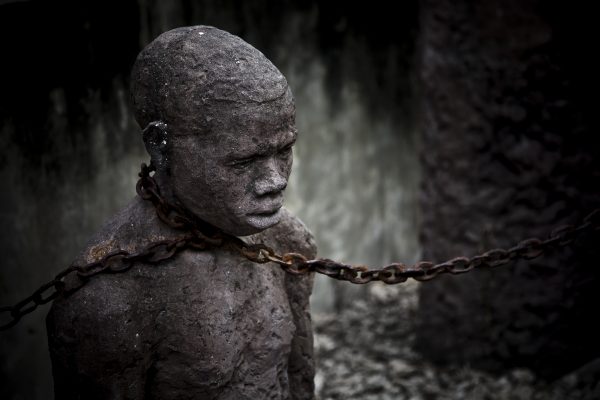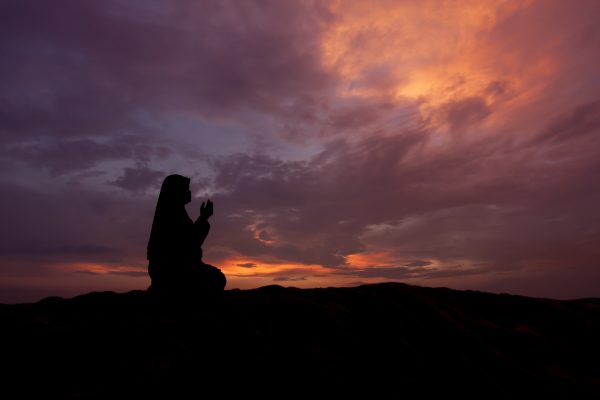“The purpose is to establish the landmarks of Your Deen, to make reforms manifest in Your lands, so that the oppressed among Your servants may have security, and Your laws, which have been suspended and cast into neglect, may be reinstated…”
“The purpose is to establish the landmarks of Your Deen, to make reforms manifest in Your lands, so that the oppressed among Your servants may have security, and Your laws, which have been suspended and cast into neglect, may be reinstated…”
“Labbayk Ya Husayn! Labbayk Ya Husayn! Labbayk Ya Husayn!” That is the cry often heard from the lovers of the Family of the Prophetic Household (ahl al-bayt) of the Prophet Muhammad (may Allah’s peace and blessing be upon him).
What does it mean? Why do millions of followers of the Ahlul Bayt lament, cry, weep and yell with sincerity “Labbayk Ya Husayn?” We are bearing witness that “We are here, Oh Husayn.”
It means that we are here, on the battlefield with you, Oh Husayn! It means that we sacrifice our wealth, families, fame, reputations, and ourselves to fight with you, Oh Husayn! What is this battlefield that we are fighting alongside Husayn? It is the battle of good over evil, right over wrong, freedom over bondage, justice over injustice, equality over inequality, it is the Battle of Karbala on the Day of Ashura!
When Imam Husayn (peace be upon him), a grandson of the Prophet Muhammad (may Allah’s peace and blessing be upon him), gathered his entire family and his most loyal companions to travel to Kufa, Iraq, he journeyed there for one purpose: to “enjoining the good and forbid the evil” (3:110).
The following verses from the famous duʻa of Arafah that Imam Husayn (peace be upon him) recited at Arafah during Dhul Hijjah gives insight into the mind of Imam Husayn (peace be upon him) before his eventual martyrdom at Karbala:
Oh Allah, You know that our struggle, moves, protests, and companions have not been, and are not, for the sake of rivalry and for obtaining power, neither are they for the sake of personal ambition nor for worldly ends, nor for the purpose of accumulating wealth and acquiring worldly, advantages…rather, the purpose is to establish the landmarks of Your Deen, to make reforms manifest in Your lands, so that the oppressed among Your servants may have security, and Your laws, which have been suspended and cast into neglect, may be reinstated…
The goal of Imam Husayn’s (peace be upon him) stand for justice was to save the religion of his grandfather from oblivion and from the hands of the enemies of Islam.
The story of Karbala begins with the birth of Imam Husayn (peace be upon him). As a child when Imam Husayn (peace be upon him) entered the mosque, his grandfather, Prophet Muhammad (saws) would put the child on his lap and say to his companions, “Look at him and remember.”
Perhaps the Holy Prophet’s insistence on remembering Husayn shows that those who will forget him will not love him as the Prophet did. Imam Husayn (peace be upon him) grew up in Madinah. His main assignment in Madinah was to teach the newly converted Muslims the fundamentals of Islam and ensure that the people knew true Islam. He also managed the Public Trust set up by his father, Imam Ali (peace be upon him), that provided food and other necessities to the poor.
In Rajab 60 AH as Muʻawiya, Governor of Syria, was dying, he violated the treaty that he signed with Imam Hasan (peace be upon him), Imam Husayn’s brother, to have a shura select his successor. Instead, Muʻawiya, who was faced with rising dissent among the people, appointed his son Yazid as his successor.
Before his death, Muʻawiya understood the love that the people had for Imam Husayn (peace be upon him) and advised Yazid, not to ask Husayn ibn Ali (peace be upon him) for the oath of allegiance. Muʻawiya further advised his son to “leave Husayn where he is and you will have no problems.”1
Imam Husayn (peace be upon him) responded “A person like me would not give the oath of allegiance to a person like Yazid, who had violated all tenets of Islam.” Imam Husayn (peace be upon him) believed he had to oppose Yazid to save and protect the values of Islam.
Based on the letters and sermons of Imam Husayn (peace be upon him) during this time, he waged a spiritual battle against Yazid. Imam Husayn (peace be upon him) migrated from Madinah to Mecca where he stayed for about five months.
In Dhul Hijjah 60 AH, Imam Husayn (peace be upon him) received 12,000 letters from the people of Kufa requesting him to move to Kufa and lead them. Imam Husayn (peace be upon him) changed his intention of performing Hajj to performing Umrah, completed the Umrah, and then departed Mecca for Kufa, Iraq.
In a letter to the people of Kufa, Imam Husayn (peace be upon him) wrote: “I have not come out to stir emotions, to play with discontentment, to provoke, dissension or to spread oppression. I wish to bring the Ummah back to the path of Amr bil Maʻroof wa Nahi anil Munkar. I wish to bring them back to the path of my grandfather, the Messenger of Allah (may Allah’s peace and blessing be upon him) and of my father Ali ibn Abi Talib.”
His journey began from Mecca on the 8th of Dhul Hijjah 60 AH and ended in Karbala on the 10th of Muharram 61 AH, where after repeatedly refusing to give allegiance, he, the majority of his family and 72 of his companions were slaughtered by Yazid’s army.
By reflecting on the legacy of Imam Husayn (peace be upon him) as a symbol of justice and equality, Black Americans, Black Muslims, and other oppressed people can stand courageously and audaciously against the social, political, economical, and educational injustices of tyrannical governments.
Like Imam Husayn (peace be upon him) we must challenge ignorant and haughty leaders and have the confidence that just as Allah protected Imam Husayn (peace be upon him) as he was on the right side of history and Islam, we too are protected by Him.
The oppressive practices to which the enemies of Islam subjected Imam Husayn (peace be upon him) are the same oppressive practices that the enemies of Islam are subjecting to the world of Islam.
Whether it is the denial of access to healthy, affordable food and adequate healthcare in the inner cities of America, safe drinking water in Nigeria, clean air in China, or adequate housing in Myanmar, the enemies of Islam are demonstrating the same characteristics of Yazid and his cohorts who oppressed Imam Husayn (peace be upon him).
Instead of being complacent, we should follow the example of Imam Husayn (peace be upon him) and stand up for the right and forbid the wrong!
This article was originally published on Sapelo Square and written by Hope Copeland, found here.
Footnotes
1 Yazid did not heed the advice of his father and immediately dispatched a letter to the Governor in Madinah demanding that the Governor take the oath of allegiance from Imam Husayn (peace be upon him). Yazid needed that oath of allegiance to add credibility to his reign.





